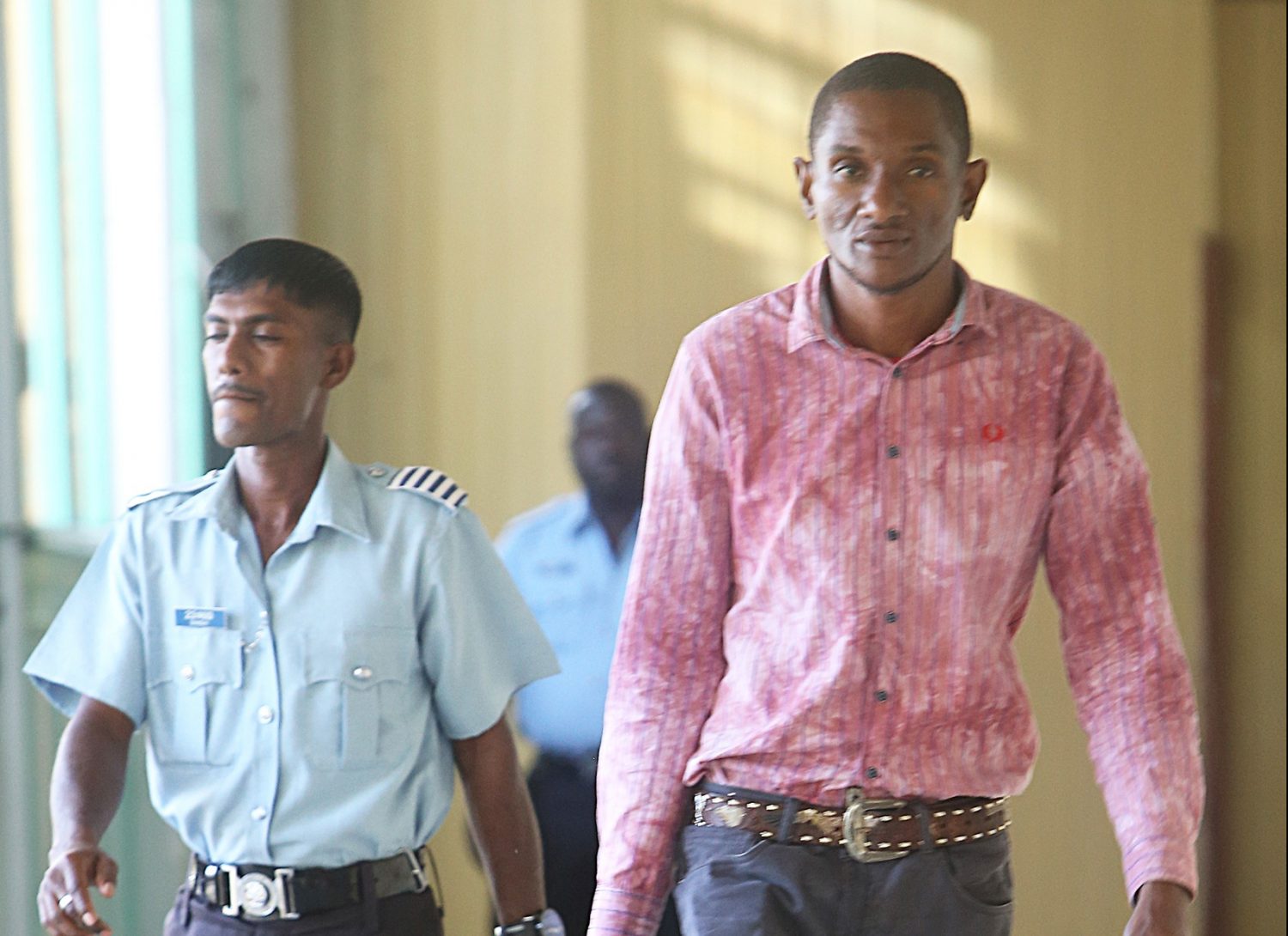Trade unionist Micah Williams was yesterday sentenced to life imprisonment after a jury unanimously found him guilty of raping an eight-year-old girl.
Williams, 34, was found guilty of penetrating the child both vaginally and rectally sometime between January 1st and December 31st, 2016, when she was between seven and eight years of age.
He was also found guilty of once again sodomising the child on January 2nd, 2017.
The father of five wore a stoic look on his face when the verdicts were announced by the foreman.
When given a chance to speak, however, Williams, who professed his innocence, questioned the jury’s findings, calling it “strange.”

“I find it strange this would be the position of the jury,” he said, describing the day as the most “terrifying” of his life, while maintaining that he never committed the acts.
Justice Jo-Ann Barlow, who presided over the case in-camera at the Sexual Offences Court of the Georgetown High Court, said that notwithstanding his lawyer’s plea for leniency, the convict himself expressed no remorse for his actions.
Referencing evidence presented at trial, the judge said that Williams sought to shift blame by tarnishing the reputation of a 14-year-old.
Justice Barlow told the convict that he could not play ignorant to the evidence presented.
She noted the doctor’s findings of the severe damage caused to the young girl’s body.
She told Williams that though he fought for the rights of others, he violated the trust the child would have reposed in him.
The judge then sentenced Williams to two life sentences, which are to run concurrently—one for each offence committed—while noting that she had found no factors to mitigate sentence.
Justice Barlow additionally ordered that a minimum of 20 years be served before the convict becomes eligible for parole.
She then also ordered that he becomes enlisted in whatever counselling programmes are offered by the prison for sexual offenders.
Though a victim impact statement was submitted, the judge did not allow it to be read, as it had not been signed by the child.
When asked why the document had not been signed by the child, the person through whom it was to be read, told the court that the child’s support person, who ought to have seen the document signed, was not around.
It was at this point that the judge noted that document was typewritten and without the child’s signature it would not be read to the court.
Williams was represented by attorney Asa Stuart-Shepherd.The state’s case, meanwhile, was led by Prosecutor Narissa Leander, in association with Abigail Gibbs and Tiffini Lyken.

